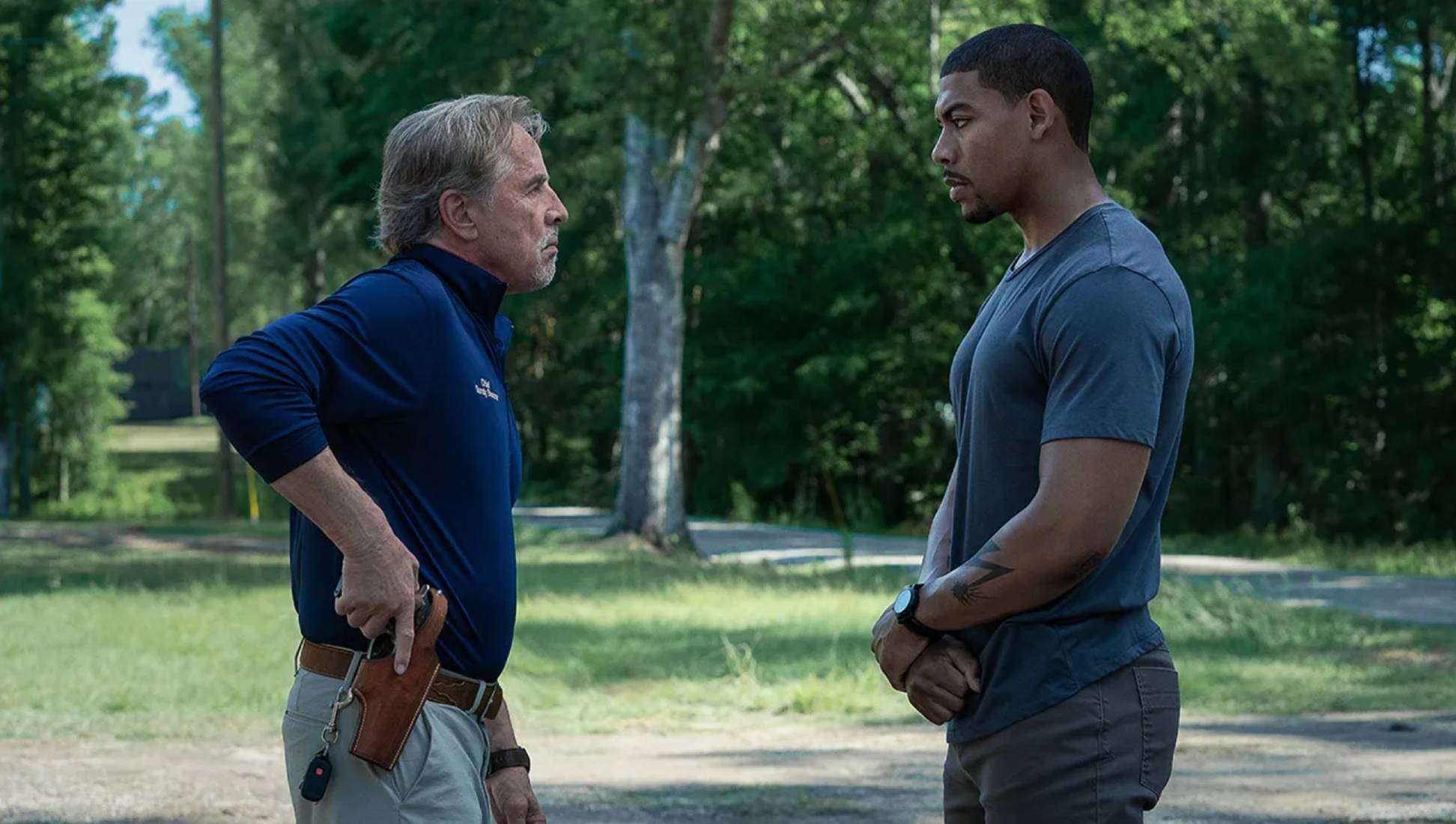Jeremy Saulnier’s Rebel Ridge is the rarest of things: a taut, tense thriller packed with rip-roaring action that is also a detailed and believably accurate story about public policy.
Specifically, it’s about civil asset forfeiture and small-town municipal budget corruption.
Yes, this is a civil asset forfeiture revenge film. Rebel Ridge follows an ex-Marine with a very special set of skills, who gets knocked over by a pair of local cops and effectively robbed of the large bag of cash he’s carrying to bail out his cousin and set himself up with a new life. But because the cops say they suspect it’s drug money, the robbery is perfectly, infuriatingly legal.
Rebel Ridge, which debuted on Netflix last week, is both smart and immaculately crafted, with a series of methodical buildups that come together for some of the most satisfying, electrifying action beats of the year. It’s part Taken, part Jack Reacher, and a whole lot of Rambo in First Blood, though it never feels derivative.
The film starts when Terry Richmond (Aaron Pierre) gets unceremoniously knocked off his bicycle by a small-town squad car. The cops say he fled, and they use the threat of wasting hours of his time to get him to allow a search of his bag. The bag, it turns out, contains $36,000, ten of which is for bailing out a cousin who, because he was once a cooperating witness, would be a marked man if he went to jail. The rest is to start a small business.
Because his cousin was charged with a drug offense, the cops seize the cash, claiming they suspect it’s related to illegal drug activity. With the help of a friendly local court clerk (AnnaSophia Robb), Richmond learns he has the right to sue to get it back, but that would take months and cost more than what he lost. And if he fights the seizure, the cops threaten to hit him with a bevy of charges that could land him in jail.
Richmond tries to negotiate with the local police chief, Sandy Burnne—played with cocky, infuriating menace by Don Johnson (yes, that Don Johnson)—making what he believes is a deal to let the chief keep most of the money, as long as his cousin gets bailed out. But Burnne doesn’t honor the deal. So Richmond begins to negotiate in other ways.
Richmond, it turns out, is not just any former Marine. Although he never fought in an actual warzone—one reason why Burnne initially believes he poses no threat—he trained other Marines in a form of defensive combat aimed at disarming opponents.
What follows from this setup is a series of increasingly tense encounters between Richmond and Burnne’s small local force. Richmond finds increasingly clever but non-lethal—or at the very least “less lethal”—ways to take down his opponents. In the process, he discovers he’s not the only victim; the forfeiture scheme is part of a vast municipal funding conspiracy.
This is wonky stuff, and sometimes the movie descends into dense legalese. But for the most part, it’s cleanly explained and plausible, with every new revelation adding to the tension.
It’s hard to stress how unusual it is that a movie like this even exists.
What’s even more unusual is that it’s genuinely good as both a policy procedural, tracing the legal mechanisms by which the local police force ruins people’s lives in order to fund an armory full of weaponry, and as a high-stakes action thriller, with nested setups and revenge-film payoffs delivered with surgical precision. There are multiple pump-your-first-and-cheer moments in the movie, thanks partly to Saulnier’s dead-on pacing and geographically coherent action choreography, and partly to Pierre’s should-be-star-making turn as Richmond.
It’s incredibly effective—and other filmmakers should take note.
As Bulwark critic Sonny Bunch posted on X, Rebel Ridge “is a more effective piece of activism than every politically minded documentary of the last five years combined.” That might be an overstatement. But it’s a forcefully political movie that leaves viewers with no doubt about its point of view.
Yet it’s not what we normally think of as a political movie: There are no moralizing speeches, no saccharine subplots designed to tug shamelessly at your heartstrings. It doesn’t end with a to-the-camera lecture that sounds like a political fundraising mailer. This isn’t an op-ed in movie form that bluntly spells out what you should think.
Instead, there’s a sympathetic hero—a (mostly) ordinary man wronged by an abuse of government power enabled by a shockingly unjust system. Rebel Ridge draws you in by crafting a character worth rooting for. And in rooting for him, you end up rooting against the grotesque real-life system that wronged him.
It’s rare, in other words, because it’s a stridently political film that simply does what movies are supposed to do: It tells a gripping story—and it makes you care.





